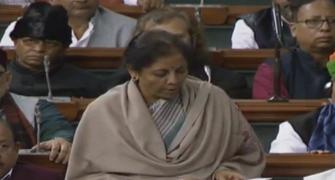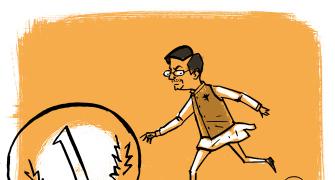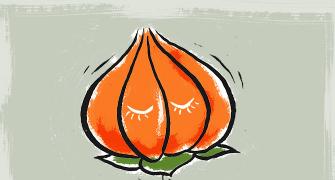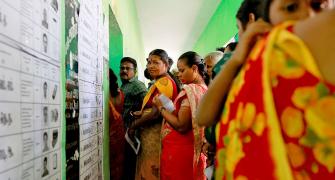The Survey noted that while women account for almost half of India's population, their participation in labour market is almost one-third and has been declining.

Deregulating labour laws, encouraging MSMEs, increasing female participation in workforce and higher spending by public sector on health and education would help create more jobs and increase employability in the country, the Economic Survey 2019-20 said on Friday.
Besides, the Survey also pointed out that India needs to create 55 lakh to 60 lakh jobs annually over the next decade.
The document tabled in Parliament on Friday noted that states like Rajasthan which went for deregulation of labour laws created more jobs than those which followed old legal framework.
"Deregulating labour law restrictions can create significantly more jobs, as seen by the recent changes in Rajasthan when compared to the rest of the states", it said.
It further stated that if labour force participation rate (LFPR) remains at about 60 per cent in the next two decades, about 55-60 lakh jobs will have to be created annually over the next decade.
The survey strongly pitched for labour reforms for providing flexible labour laws in the country to boost job creation, especially among micro, small and medium enterprises (MSMEs).
There were no major labour reforms initiated by the states from 2007 to 2014.
In 2014, Rajasthan was the first state that introduced labour reforms in major Acts.
Thereafter, many states followed Rajasthan's path.
A comparison by the survey between the indicators for labour, capital and productivity of manufacturing firms in the inflexible and flexible (labour laws) states showed that "flexibility in labour laws creates a more conducive environment for growth of industry and employment generation".
The survey also observed that due to rigidity in labour laws, employers in inflexible (labour laws) states prefer substituting labour with capital.
It said inflexible states are suffering in all dimensions and are unable to create enough employment, cannot attract adequate capital into their states and their wages are lower as their productivity is lower.
Stressing the need to encourage MSMEs, it said MSMEs that grow not only create greater profits for their promoters but also contribute to job creation and productivity in the economy.
The survey suggested that the policies must, therefore, focus on enabling MSMEs to grow by unshackling them.
The document noted that while women account for almost half of India's population, their participation in labour market is almost one-third and has been declining over several survey rounds.
It observed that lack of attainment of appropriate education level/skill sets is confining women to domestic duties.
Low female wages in agriculture sector were driving out females engaged as unpaid labour, it said.
The regular wage category saw a significant jump of around 2.62 crore new jobs with 1.21 crore in rural areas and 1.39 crore in urban areas between 2011-12 and 2017-18.
"Remarkably the proportion of women workers in regular wage category have increased by 8 percentage points (from 13 per cent in 2011-12 to 21 per cent in 2017-18) with addition of 0.71 crore new jobs for female workers in this category," the survey highlighted.
The distribution of workers in self-employed category remained same while the proportion of workers in casual labour category decreased by 5 percentage points from 30 per cent in 2011-12 to 25 per cent in 2017-18 with the decline being in rural areas, it added.
With 1.34 per cent average annual HDI (Human Development Index) growth, India is among the fastest improving countries, and ahead of China (0.95), South Africa (0.78), Russian Federation (0.69) and Brazil (0.59), it said.
To sustain this momentum in human development and to further accelerate it, the role of public sector in delivery of social services such as education and health is critical, the survey added.









